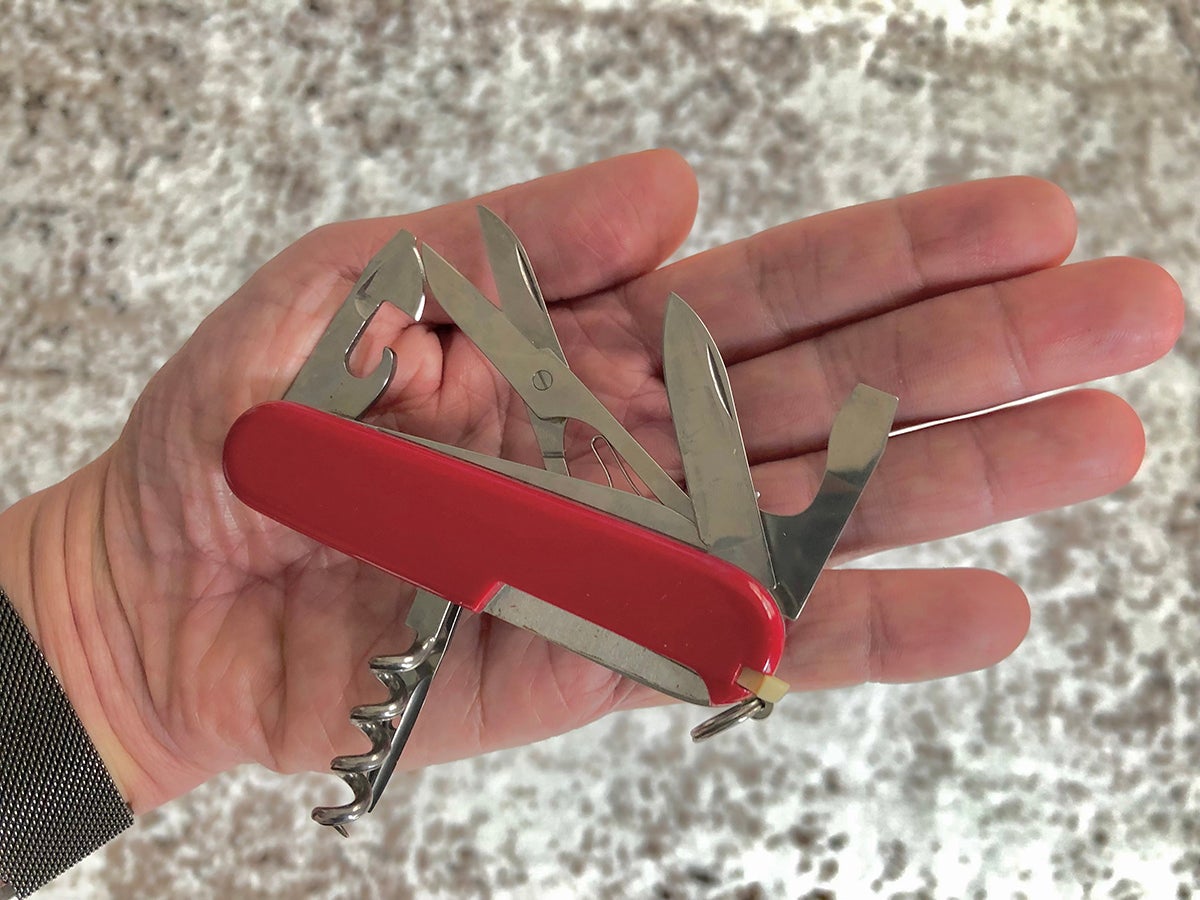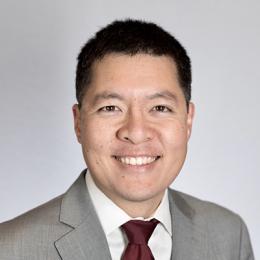This article was inspired by a LinkedIn post written by Andrew Ting. For more insights on in-house law, connect with Andrew on LinkedIn.
Thirty-one years ago, my future brother-in-law gave me a Swiss Army Knife. Different tools for different jobs. Single-purpose tools are stronger, but this knife has staying power because it can do everything.
In my life, I’ve worked as a street cellist, IT help desk technician, business law professor, graphics designer, textbook writer, and drug marketing consultant. I learned different tools for different jobs. I now work as the general counsel for a fintech company, but the tools I learned from different jobs give me staying power as a lawyer.
Street Cellist: “The show must go on”
During high school, college, and law school, I worked as a cellist playing gigs in shopping malls, weddings, coffeehouses, churches, and on the street. My string quartet repeated the same 10 Christmas songs for eight hours straight on December weekends in the shoe section of JC Penney’s, grinning with Santa even though we couldn’t stand Jingle Bells anymore. In beach weddings, when the wind blew as the bride sashayed down the aisle, we fumbled with clothespins to keep our sheet music from flying off our stands. On stage, during my orchestral solo, my metal A string snapped, so I transposed my notes to the D string. No beats missed.
I learned to prepare for everything, but also to prepare to improvise. Whatever happens, the show must go on.
Most lawyers need to perform for people. But performances rarely go as expected. Maybe the judge is rude and cuts you off in oral argument. Maybe the board chairman has discarded the agenda and is demanding answers on an area of law you know absolutely nothing about.
When my heart starts thumping and my hands clam up, I remember that life, and law, is all performance. Think fast in the clutch, grin, and bear it. Don’t be distressed, push forward with panache. Time to shine!
IT Help Desk: “Service with a smile”
For three years, I worked 10 hours a week for US$15/hour at the IT Help Desk at Harvard Business School. My first day on the job, a student shoved a desktop computer spewing acrid smoke into my manager’s face and screamed obscenities. My manager called security.
It eventually got better. I learned to defuse most situations. I learned angry clients would give me about three minutes to show I was competent or they would call my supervisor. I learned to quickly convince clients I was on their side by explaining my real-time thought process to investigate and resolve their problems. I learned clients don’t want speculation or technical explanations about why things don’t work; they want practical next steps. I learned I cannot help fix all of my clients’ problems even if I try very hard. I learned that empathetic honesty and saying sorry even when it’s not your fault help the helper not be blamed.
I learned a lot of law in Harvard Law School, but I learned how to practice law in the IT help desk of Harvard Business School. Law is fundamentally a service profession. We are counselors to people with problems. Nothing more, nothing less.

Adjunct Professor: “Talking law and leading through teaching”
I now work as an adjunct professor teaching business law classes at both George Washington University Law School and Georgetown University’s McDonough School of Business. Teaching taught me how to talk about law and influences my leadership style as a general counsel.
Talking law
Honestly, teaching law is hard. The subject material is abstract and complex. Talking law to a jaded audience of 50 students in a classroom — or Zoom — is difficult, especially in my Monday 6-9 PM time slot.
Honestly, practicing law is hard. The subject material is abstract and complex. Talking law to opinionated businesspeople in a boardroom — or Zoom — is difficult, especially because law and lawyers are seen as a means to a business end. Clients usually don’t want to talk about law with countervailing considerations and shades of gray. Clients want the black-and-white answer: “Just tell me: yes or no?”
It’s not your fault! Law is boring! To make people listen, first establish a relationship where your audience wants to listen to you. Establish your credibility, establish that you are a fascinating person, and most of all constantly validate your message with your audience. If their eyes gleam, talk it up. If they start looking at their phones, try another tactic. Dialogue, not monologue!
Lead with the bottom line — talk law in the terms of what the audience cares about. Get to the point, fast. Reinforce your relevance to your audience, and they are more likely to listen and be open to your influence.
Leading through mutual teaching
I am grateful to my mentors who taught me what matters when I started out as an eager and inexperienced junior lawyer. After I actually knew what I was doing, I gave back by teaching teams of junior lawyers. I found my teams quickly became competent and loyal.
My teams knew I did not see them as expendable one-and-done tools, but as people worthy of investment for long-term personal and professional development. With focused direction and structured feedback, my teams materially outpaced their peers in performance.
Teaching is now a core element of how I lead, but the leader should not be the only teacher on a team. I may have a head start because I work as a teacher, but a culture of continuous learning requires everyone to be both teachers and students. I reserve time every week for my team to teach each other.
We tackle unfamiliar challenges and reflect together on what worked, what did not work, to teach ourselves how to do a better job next time. Each person grows by supporting each other’s growth, and the team’s overall effectiveness grows by cultivating deep and diverse skills, talents, and experiences.
Money, titles, and power all motivate people. But for me, it is simply awesome to motivate people based on a shared commitment to learning and overcoming challenges together.
So, what?
We are the sum of the experiences we choose to integrate into our lives. For me, these experiences include performing my cello, fixing broken computers, and teaching business law. For you, reflecting on lessons from your non-legal experiences may help you become an even better lawyer. Or more importantly, an even better person. For more, watch my ACC TED Masterclass talk, Bridge Your Past Experiences to Grow.
All of us have unique life stories, dotted by diverse roles and relationships. When we draw lines between the dots in our life stories, we realize the dots are not that far apart. Sometimes, our life dots even align into sparkling constellations.
So, let’s celebrate the meandering path, the life novel that jumps from chapter to chapter, and the jack-of-all-trades! Let’s celebrate lifelong learning and career choices that make people wonder!




